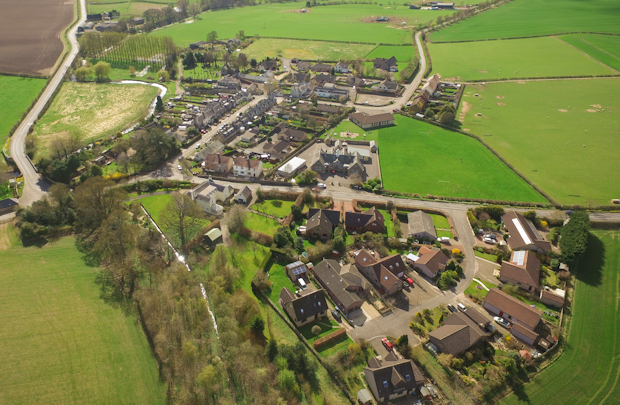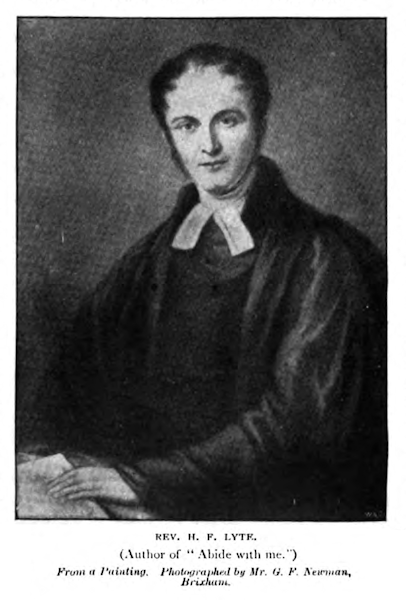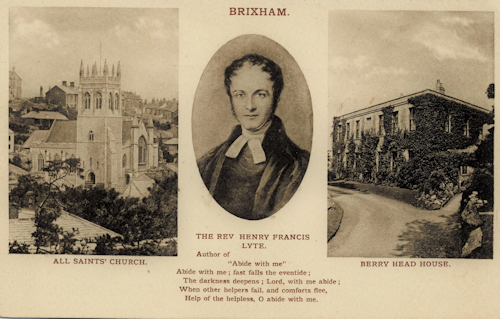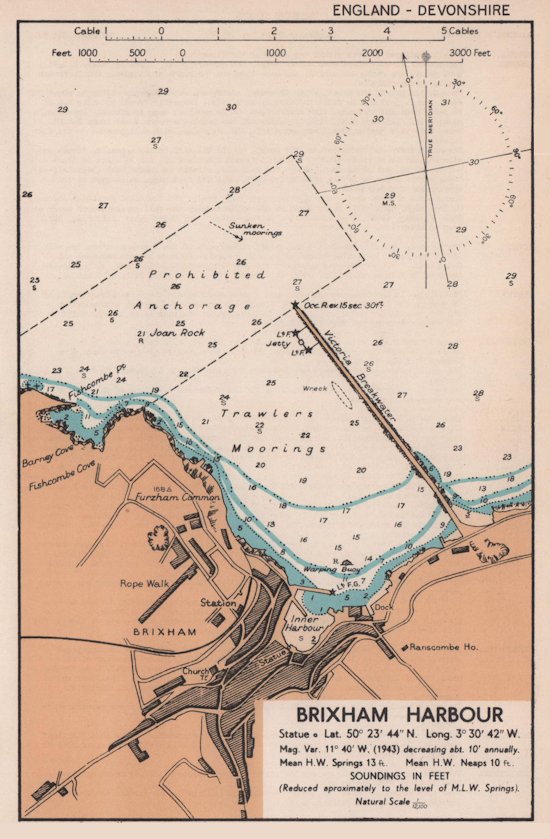

|

|
|
Service in Ednam Church, 1830 Sunday 01 September 2024 Alasdair Hutton |
|
The writer of our first hymn this evening, Henry Francis Lyte, came into the world here in Ednam, in West Mains, then known as The Cottage, in 1793 and went on to achieve fame across the world as a lyrical hymn writer and a preacher of great charisma. Although the Lyte family originally came from Somerset, quite why Henry entered the world in Ednam may have been because his father, a Captain in the Army, and his mother, Anna Maria Oliver, had not been formally married. At that time in Scots law a couple who lived together and were accepted as man and wife were deemed to be legally married. Sadly Captain Lyte, turned out to be something of a "ne-er do-well ... mostly interested in fishing and shooting", of which he would have found plenty in the Borders and he seems to have preferred those to the responsibilities of married life. Captain Lyte was between wars and basically on leave until he was recalled to the colours and posted to Ireland where he made arrangements for his two oldest sons to attend Portora Royal School, a public school founded by royal charter in 1608 in Enniskillen in County Fermanagh. He then promptly deserted the family packing Henry’s mother off to London, where both she and her youngest son sadly died. Although it was not a great start, the headmaster at Portora, Dr Robert Burrowes, nonetheless recognised Lyte´s lyrical ability with words, paid the boy´s fees and "welcomed him into his own family during the holidays". Lyte effectively became an adopted son. From Enniskillen, Lyte won a bursary to study at Trinity College in Dublin in 1809 taking a Literature degree and winning the prize for the best poem in English for three years in succession. Then with very limited training for ordained ministry, he took Anglican holy orders in 1815. Like many young men down the years, Lyte had no clear idea of what he should do with his life but in about 1816 at the age of 23, he experienced an evangelical conversion and began to study the epistles of St Paul "in their plain and literal sense". |
 |
 |
Always troubled by respiratory illness, Lyte returned to the better weather of the area of his family’s roots in the south west of England in 1817 and became a curate in Cornwall. There he met and married Anne Maxwell, seven years older than her husband and a "keen Methodist." Although she "could not match her husband´s good looks and personal charm", the marriage was happy and successful and the couple was blessed with two daughters and three sons. Anne made Lyte´s situation more comfortable by contributing her family fortune, and her skills as an excellent manager of the house and their finances. After moving between Hampshire and Devon the Lytes settled in Lower Brixham a fishing village in Devon where he seems to have felt wholly at home. Almost immediately, he joined the schools committee, and two months later he became its chairman. In 1824, Lyte established the first Sunday school in the Torbay area and created a Sailors´ Sunday School. Although the children received religious instruction there, the primary object was educating both children and the seamen for whom other schooling was virtually impossible. Each year Lyte organised an Annual Treat for the 800–1000 Sunday school children, which included a short religious service followed by tea and sports in the field. He also wrote the hymns they sang and when he was ill, his favourite gift to them was to write a new hymn. |
|
Shortly after Lyte´s arrival in Brixham, the minister had started to attract such large crowds that the church had to be extended, although the resulting structure was later described by his grandson as "a hideous barn-like building." Lyte was a tall and "unusually handsome" man, "slightly eccentric but with great personal charm. He was noted for his wit and human understanding, a born poet and an able scholar". He frequently rose at six in the morning and prayed for two hours or more before breakfast. But most important, Lyte was also able to identify with his parish of fishermen, visiting them at their homes and on board their ships in harbour, supplying every vessel with a Bible, and compiling songs and a manual of devotions for use at sea. During his tenure, King William the Fourth visited the town. Lyte arranged for him to step ashore from the Royal Yacht at the same spot as King William of Orange had landed in 1688 to start the Glorious Revolution and for the Choir to sing their greetings to The Sailor King. As a reward the King granted the Lytes Berry Head House, a former military hospital, where the minister built up a library, largely of theology and old English poetry, described later as “one of the most extensive and valuable in the West of England”. Lyte spoke Latin, Greek and French, enjoyed discussing literature; and was an expert player of the flute and, according to his great-grandson, always had his flute with him. In politics, Lyte opposed slavery and became a friend of Samuel Wilberforce, organising an 1833 petition to Parliament requesting it be abolished in Great Britain. Constantly suffering poor health throughout his life with various respiratory illnesses he regularly visited continental Europe, as was common at the time, in his attempts to check their progress. In 1835 he sought the appointment of vicar of Crediton but was rejected because of his increasingly debilitating asthma and bronchitis. In spite of all the highly problematic treatments he undertook his friends found him buoyant, cheerful, and keenly interested in the wider affairs of continental Europe. By the 1840s, Lyte was spending much of his time in the warmer climates of France and Italy, making written suggestions about the conduct of his family´s financial affairs after his death. In Devon, Lyte spent the summer of 1847 at Berry Head then, after one final sermon to his congregation on the subject of Holy Communion on 4th September 1847, he left again for Italy. He died on 20 November 1847 at the age of 54, in the city of Nice, now in France but at that time in the Kingdom of Sardinia, where he was buried. His last words were "Peace! Joy!" We remember Henry Francis Lyte now as a great writer of lyrical hymns. He had started by writing various books of poetry on religious themes but it is the hymns we remember best. Three of Lyte´s best-known hymns are paraphrases of the psalms, "Praise My Soul, the King of Heaven” (Psalm 103), "God of Mercy, God of Grace" (Psalm 67), and "Pleasant are thy courts above" (Psalm 84), all published in his book The Spirit of the Psalms. We have just sung the first and will sing the other two later. Lyte´s best known hymn by far though is Abide With Me based on Luke 24. He most likely wrote the hymn in July or August of 1847 and gave a copy to his family after he had conducted his final service at the beginning of September before he set off on his final journey. |

|
|
Lyte himself created what his biographer has disparaged as "a dull tune" for the hymn. When Hymns Ancient and Modern was published in 1861, the editor, William H Monk, whose three-year-old daughter had just died, composed his own tune, "Eventide," for Lyte´s poem and we have sung it to that melody ever since. The hymn became a favourite of King George the Fifth and his son King George the Sixth and was sung at King George the Fifth’s funeral and at the late Queen Elizabeth’s wedding. The hymn inspired Field Marshal Lord Kitchener and General Charles “Chinese” Gordon, and it was said to have been on the lips of the British nurse Edith Cavell as she faced a German firing squad in 1915. "Abide with Me" has been sung before the kick-off at the FA Cup Final since 1927 when the association secretary substituted the hymn for the playing of "Alexander’s Ragtime Band” and it has been sung before the Rugby League Challenge Cup final since 1929, the first year the match was staged at Wembley Stadium. At Lyte’s old school, Portora Royal School, which was merged in 2016 to form Enniskillen Royal Grammar School, the hymn was the school’s victory song and was sung at its remembrance service. In the south choir aisle of Westminster Abbey there is a white and brown alabaster tablet dedicated to Henry Francis Lyte with ‘Abide With Me; Fast Falls the Eventide’ inscribed on it as a lasting memorial in Britain to an extraordinary hymn writer. It is truly remarkable that such a small village as Ednam should produce a writer with the lyrical gifts of Henry Francis Lyte but as you will hear later it has been the birthplace of not just one but of two extraordinary literary sons both of whom composed universally loved anthems which are still sung with deep feeling and enthusiasm all these many years later. What could be more appropriate than that we continue this evening’s service by singing Henry Francies Lyte’s great universal hymn Abide With Me. |
Web design by Jean Douglas (©) |